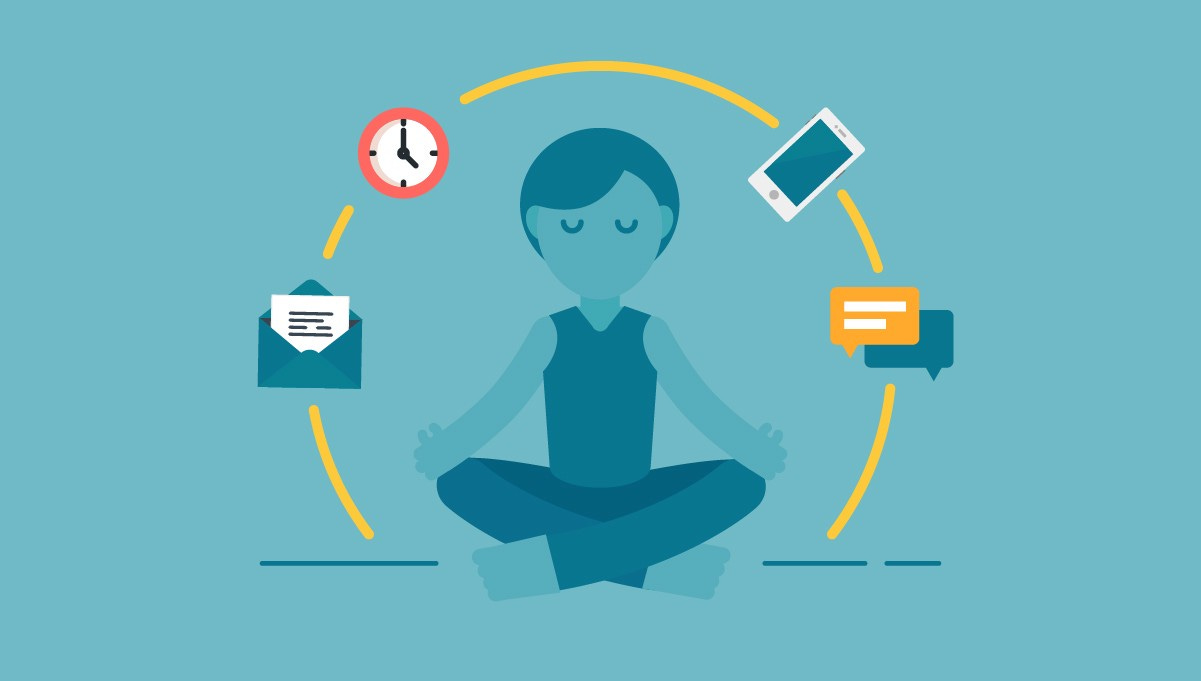How to Balance Email and Personal Time 📨
Some tips for managing your Inbox while maintaining your mental health
I recently received a note from a busy professional who was struggling with managing the chaos of working from home with kids. This professional works in a hectic industry and finally decided to take a mental health day to avoid burnout.
They found the mental health day and break from email so refreshing, they asked for some guidance on how to make this part of their regular work habit. I thought I’d share the response I sent in case you or a member of your team is struggling with the same issue…

Friend,
I’m so glad you took a mental health day! Those are important for busy professionals—especially during this chaotic time. I recommend building them into your schedule regularly because they help keep you grounded during intense times. That’s so awesome you’re listening to yourself and giving yourself what you need right now—and looking to the future of how you can continue to take care of yourself.
Yes, there are many tactics you can use to help with this. I think working in your industry is particularly hard because of demanding deadlines. But you can establish certain guidelines and protocols to help guard your personal time and deep work/focus time. Here are a few I suggest:
Turn off notifications for your work email. You can do this anytime you need to focus, but absolutely do this on your days off.
Put the email app on the third or fourth screen back on your phone. Having to scroll further to access it gives you time to stop yourself from opening it. This means building the mental discipline to stop yourself and remind yourself your need and deserve a break. The world won’t end if you don’t check your email for the day. People will track you down and call you if it’s absolutely urgent.
If you MUST check email for any given reason, make it a set time and length. For example: Saturday at 10am for 20 minutes.
Then stick to it! Don’t let it creep up to 30 minutes. Mark anything you can’t do right then as “unread” or “respond Monday” and go back to your personal time.
Use an auto-responder that lets people know when and how you check your email. For example: Thanks for sending me your note. I check my email daily at 10am. If you send me an email after that time, you can expect a response the following day when I check my email. If this is an urgent matter, please call xx.
Don’t feel guilty about this; it’s about YOU and your schedule, not theirs. This is asynchronous communication, which puts you in charge of your schedule.
One other thing you may consider, if you aren’t doing it already, is having a special email just for urgent matters. So you could have an alert just for that email account and would know you’re only receiving notifications for urgent matters. You can rotate on your team who is checking that email on weekends and evenings.
I started making this transition a few years ago when I realized I was letting work creep into other parts of my life. So I followed many of the steps above. Now, I don’t check email on weekends or evenings. I don’t let one aspect of communication (email) govern my schedule. I know my teammates will text/call me if it’s urgent. And that rarely happens now. I taught others how I wanted to be treated and they follow those guidelines. The culture we intentionally built respects personal time and prioritizes asynchronous communication, which respects personal schedules and work styles.
One bonus tip: block out “No calls” times on your calendar so no one can add meeting invites. Others don’t need to know what you’re doing, they just can’t add a call to that time. This gives you breathing room throughout the day to focus on your priorities.
I hope these ideas help! It can be challenging to transition to this way of guarding your time. But it’s critical that you do it so you can maintain your energy and not burnout, friend.
Work happy. Live happy. BE happy.
Meredith
Are you ready to increase your conscious leadership? Want to talk about building your remote team? Send me a note and let’s talk about achieving your goals.
And if you haven’t already, please sign up for this newsletter so you’ll receive the latest insights on conscious leadership, remote work success, remote team building, and the future of work.


